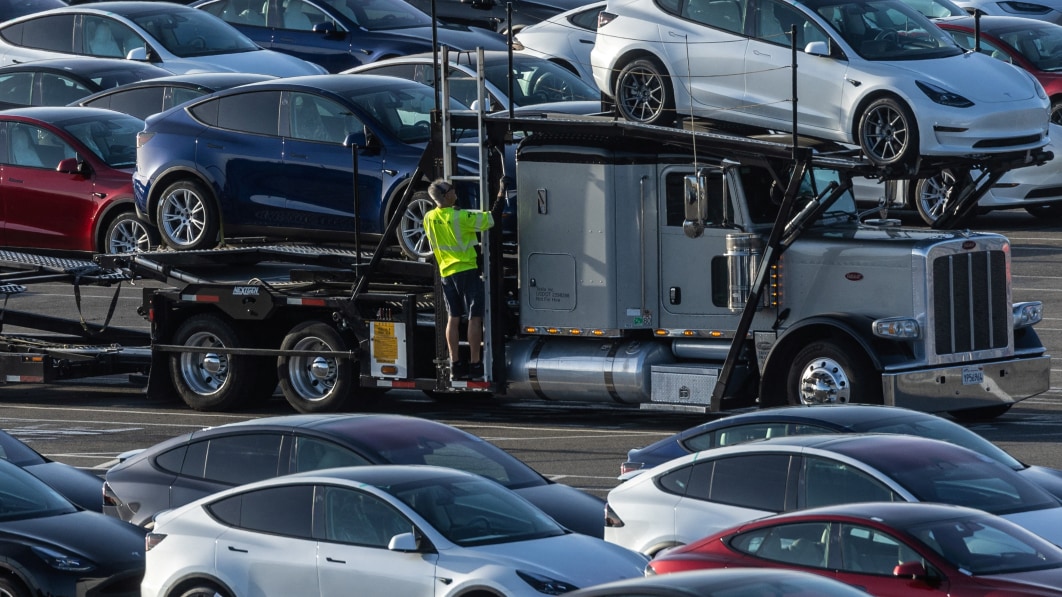
SEOUL — Tesla CEO Elon Musk is ready to cut electric car
“It does make sense to sacrifice margins in favor of making more vehicles,” Musk said on Wednesday, noting that Tesla was facing “turbulent times.”
Tesla shares fell nearly 10% on Thursday as investors worried that the automaker’s margins, which have been in steady retreat for the past year, face further headwinds.
But whether Tesla offers additional discounts or not, the tax credits for battery manufacturing give it a competitive edge over rivals that make fewer batteries, Reuters‘ analysis of the company’s second-quarter results shows.
Tesla has slashed prices in the United States, China and other markets since late last year. A Model Y, now the world’s best-selling vehicle, costs 20% less in the U.S. than at Christmas 2022. Including the $7,500 Biden tax credit, the price is down 35%.
Tesla’s dynamic discount ing strategy, combined with the subsidies, helped boost its second-quarter U.S. sales 35% from the year-ago period, Cox Automotive data showed.
The battery tax credits in the Inflation Reduction Act, which kicked in this year, amounted to a subsidy of about $900 to $1,400 on every Tesla sold in the United States in the second quarter, according to the Reuters analysis based on Tesla’s forecast and U.S. sales.
Combined with $600 per vehicle Tesla collected from selling regulatory offsets to other manufacturers to meet emissions standards, the U.S. government subsidies offset most of the $2,500 price cut in the quarter on the long-range version of the Model Y.
“Tesla’s manufacturing tax credits should help to at least partially offset some of the price cuts Tesla had to implement to spur demand,” Morningstar analyst Seth Goldstein said in an interview.
TESLA’S BONANZA
Tesla is the biggest beneficiary of battery production credits under the IRA, which offers incentives to U.S. manufacturers. It produces batteries with supplier Panasonic in Nevada and is increasing output at its own Texas plant.
Consultancy Benchmark Mineral Intelligence estimates Tesla and Panasonic will collect about $1.8 billion in production credits this year, far more than the $480 million it expects for General Motors and its battery supplier, LG Energy Solution.
Despite benefiting from the tax credits, Musk has criticized U.S. President Joe Biden and many of his policies and called for subsidies to be eliminated.
Chief Financial Officer Zach Kirkhorn said Tesla expects to book $150 million to $250 million in battery credits each quarter this year, after accounting for its subsidy split with Panasonic. That could rise as Tesla ramps battery production.
“The value of credits this year will not be gigantic, but I think it could be gigantic. We think it probably will be very significant in the future,” Musk said during Tesla’s earnings conference call in January.
Under the IRA, manufacturers qualify for tax credits based on the capacity of a U.S.-made battery. For the Model Y, a full payout would amount to $3,375 per vehicle before the payout to Panasonic.
Many analysts exclude the regulatory credits Tesla collects from other automakers, but include the Biden manufacturing credits, when calculating its underlying profit margin.
Tesla’s quarterly automotive gross margin, excluding the regulatory credits, fell to 18.1% in the second quarter from 26% a year earlier.
Related video: